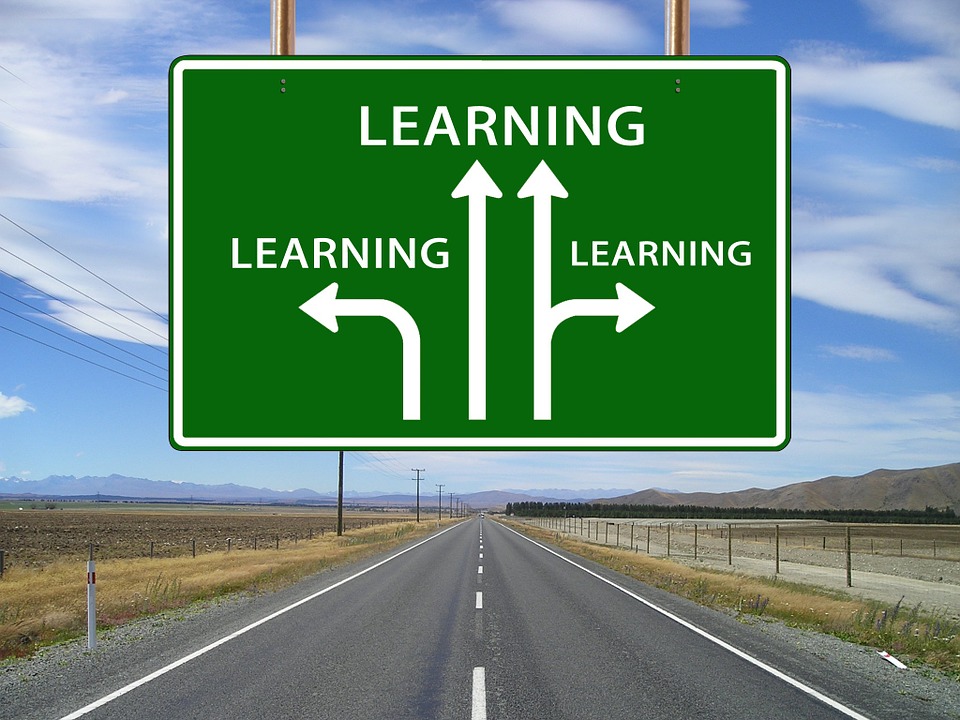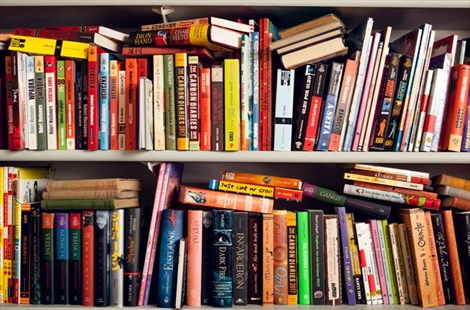2016年3月
文/Andy Lee
One day my dad knocked on my bedroom door and threw a book at me. It was called ‘Feel the Fear and Do it Anyway’ by Susan Jeffers. My dad would have no clue how much that book changed my life, and he only got it because it came free with the tabloid newspaper that he actually wanted to read. 15 years later I still have it on my bookshelf. I haven’t read the book since and would fail miserably if you asked me to tell you what it was about. But it did change my life. It gave me a desire to learn. It tapped into a part of me that wanted more. I felt like I understood more about how people work, how I work, how life works. It provoked my thoughts and opened my mind that little bit more. And so began my reading habit, and with each book my mind opened up a little bit more.

For me, school was different, college and university were different. They’re just not in the same learning category as reading books I wanted to buy for personal pleasure. I learned a lot at university (though mostly forgotten now), but I felt like I grew as a person reading topics outside of my degree course, across multiple subjects. In one sense I know I’m fortunate to naturally have an inquisitive mind, there are others that just aren’t curious about how things work. If you told me you cut down trees for a living, I’d ask you how it’s done, from the tools to the technique, from the hours to the laws that govern it. It’s a great way to have a conversation too, as people generally enjoy talking about themselves. But that’s not why I do it. I just want to know. It feels like one less thing in the world that I now have a question mark hanging over. I call that progress.
If you’re not naturally inclined to want to learn stuff, that’s ok. It’s an explanation for why maybe you don’t read as much as you could, or why you don’t find out more about another person’s interests, but it’s definitely not an excuse. After graduating from university, I’ve heard people say, “I’m done! I’m so glad I don’t have to ever read another book again!” I’m thinking, “You’re missing out”.
A good book can contain wisdom and guidance that took years, maybe even decades, to acquire. The book could only exist through someone’s mistakes and life experience. Or hundreds of thousands of hours and lots of money invested into a very focused subject area, before it can be turned into a few hundred pages of book. We learn through our mistakes, but rather than spend our whole lives making and learning from our own mistakes, wouldn’t it make sense to learn from the mistakes of others? Through learning about the experiences of people that have gone before us, we can accelerate our learning. But first you must want to.
Maybe you were pressured into studying by your parents, or maybe it was just that your experience during formal education was one to forget. I’m really sorry if that was the case. But it doesn’t have to end there, though. Don’t let it put you off. Instead, realise that learning doesn’t have to stop once you’ve graduated but that it could be a lifelong journey of discovery. So if reading really isn’t your thing, that’s ok. There are lots of ways to learn – online courses, audiobooks, DVDs, physical courses you could enrol on. What I’m suggesting isn’t easy. It’s far easier to sit on the couch, watch TV, play video games or go on Facebook for hours on end. But where’s the value in that? Go on, challenge yourself this year, tap into the ever growing opportunities to educate yourself in an area you’re passionate about. You deserve it.
中文 翻譯
你學夠了嗎?
翻譯/劉愛群
有一天,老爸敲我的房門,扔了一本書給我,書名叫《害怕也去做》。其實這是他買報紙時送的,相信他做夢也不會料到,這本書為我的生命帶來多大的改變。 15年後的今天,它仍放在我的書架上。我沒有再看過這本書,如果你問我內容說些什麼,我也不記得了,但它確實改變了我的生命:它給予我求知慾,使我不斷渴求新知識。我覺得自己更能瞭解別人、瞭解自己、瞭解生命。它激發我更多思考、頭腦較前開放。我養成了看書的習慣,而每本書都幫助我的思想開放多一點點。
對我來說,因個人興趣而買書來看,跟小學、中學和大學裡的學習截然不同。在大學裡,我的確吸取了許多知識 (雖然大部分已忘記了),但我覺得,閱讀課程以外關於多個不同學科的課題,大大地幫助了我的成長。我知道自己很幸運,天生求知慾強,但有許多人卻缺乏好奇心。若你告訴我,你以砍樹為生,我會問你怎樣做: 從工具到技巧、從工作時間到勞工法例,我都有興趣。這是挺好的交談話題: 人總是喜歡談自己的事。但這並不是我提問的原因:我就是想知道!這令我感到: 對於世界上的事物,又少了一個問號,我稱這個為「進步」。
如果你不是天生好學,這也沒問題。可能因此你不大喜歡看書,或者因此你不去更多地瞭解別人的興趣,但這藉口絕對不成理由。大學畢業後,我曾聽過有人說:「好了,謝天謝地:我再也不用多看一本書啦!」我心想:「你錯過的太多啦!」
一本好書,可能包含著經年累月或甚至數十年才積聚到的智慧和知識。這本書可能是別人經過一生的挫折和奮鬥才寫成;又可能是別人針對某個主題,花了成千上萬個小時和一大筆資金,才寫成寥寥數百頁的一本書。我們都從錯誤中學習,但如果能從別人的錯誤中學習,不是更划算嗎?從前人的經驗中學習,當然更快速,但你必須首先有學習的渴求。
也許以前你被父母所逼而上學,或者你正規教育的過程乏善可陳。如果是這樣的話,我很抱歉。然而,別讓它嚇怕了你,而原地踏步。相反地,明白到學海無涯。縱使你已經畢業,學習的過程可以是一個終身探索的旅程。如果你不喜歡看書,還有許多學習的方法,例如網上課程、有聲刊物、光碟等等,你也可以報讀一些課程,實地參與。這些聽來好像頗難,待在沙發上看電視,玩視頻遊戲或「臉書」,玩上幾個小時,會容易得多,但那又有什麼價值呢?自學的機會日益增加,來吧,今年就挑戰自己,選擇一個你所熱愛的領域進修一下吧,這是你應得的!





